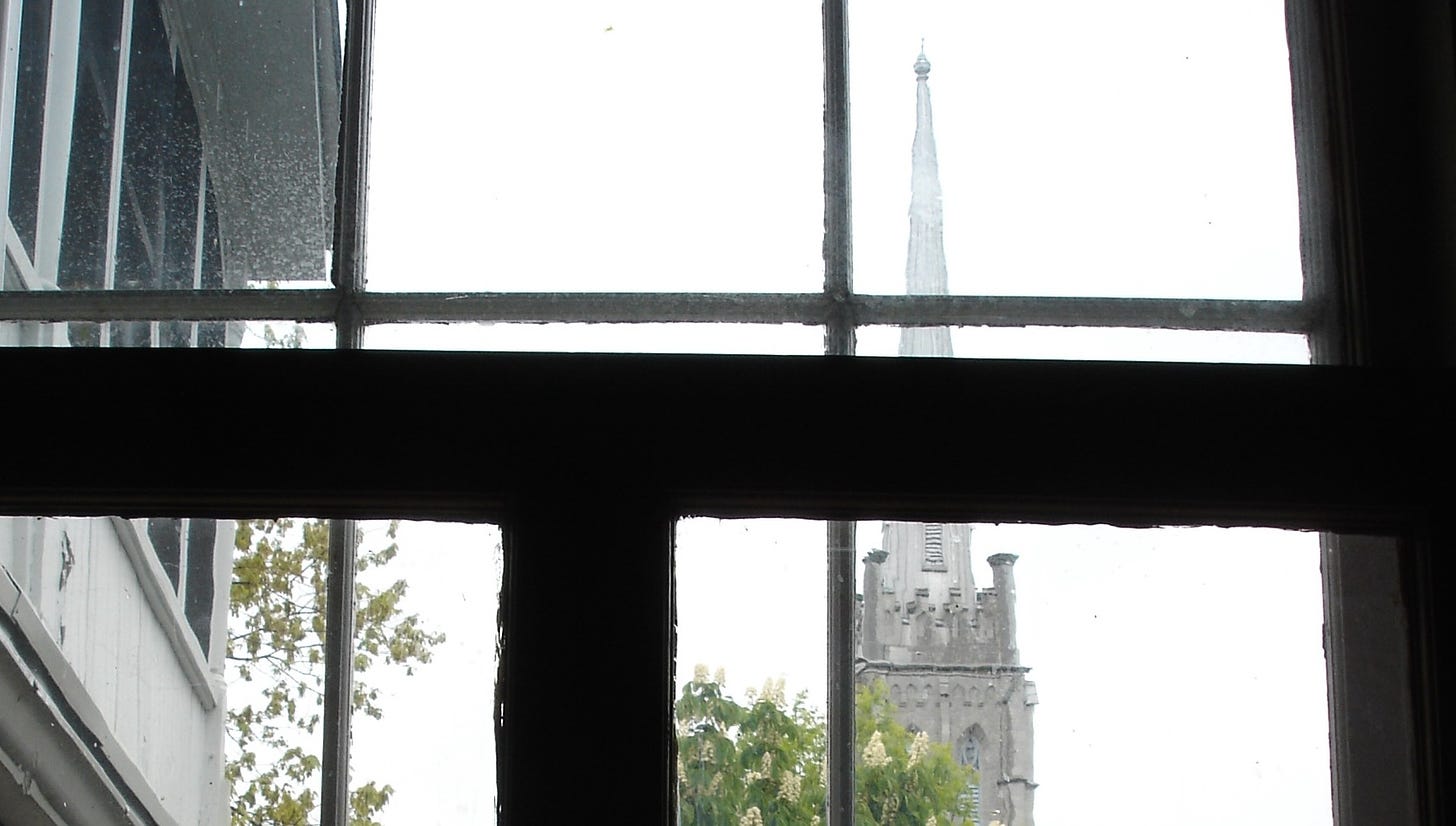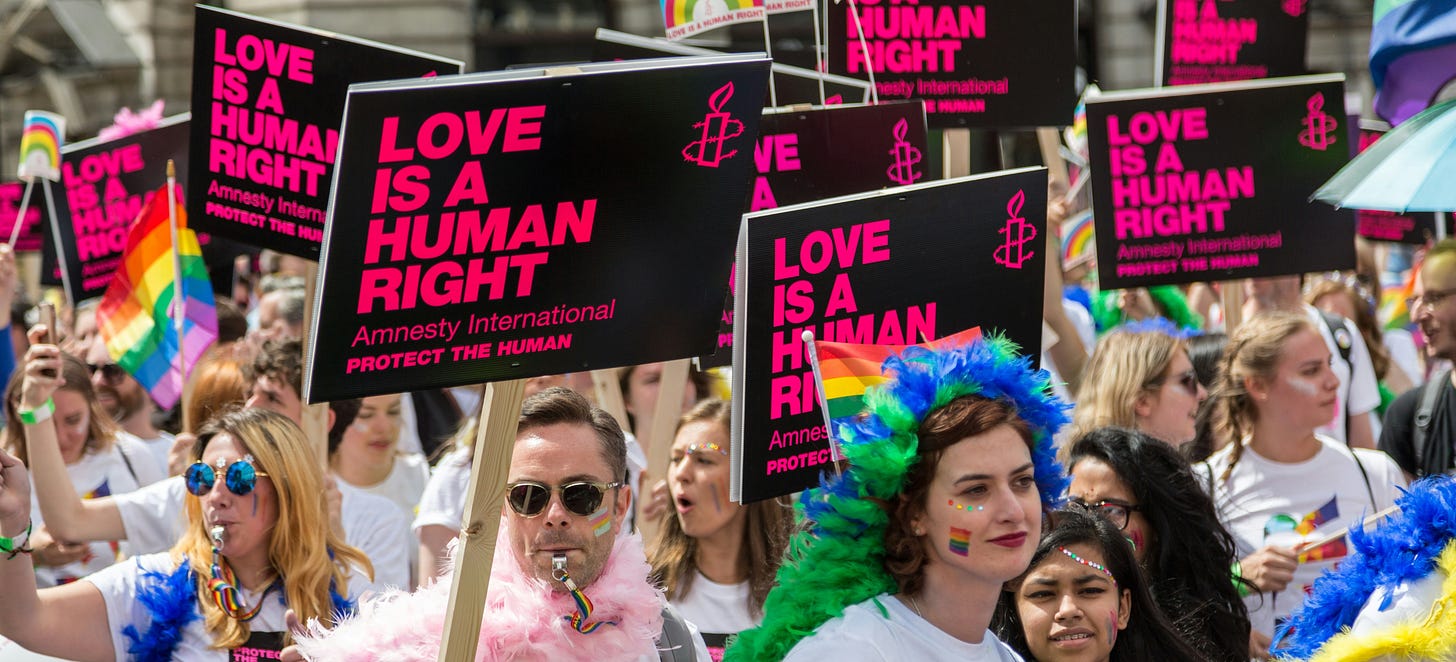Call it heresy if you must, but you need to know: it wasn’t me who started it all.
The work of shifting community beyond the traditional language of faith, work that ended up defining my position within The United Church of Canada, began in the easternmost suburb of Toronto in the late 1990s. It was undertaken by my congregation, West Hill United Church, over the course of a decade. Early in my ministry there, those responsible for the oversight of Sunday services and special, congregational gatherings around the liturgical year, entered into conversations about what, exactly, was happening when we got together on Sunday mornings. Because, we got together to worship, right? As it turned out, there wasn’t much of a consensus on that.
In our very first discussion - about what to do with the filled offering plates after they had been sent through the pews - it became clear that the word “worship” was somewhat off the mark. Trying to decide what to do with those plates and the money on them set off a process of theological conversation and engagement that, over time, rolled through every element of the Sunday service and, by the end of its first decade, left very little as I had found it. Indeed, the first things we realized together were the absence of consensus on religious matters, the importance of finding common ground, and the challenges that emerging realities would set before the congregation, its members, and me. In addition, it was clear that the congregation was ready to take responsibility for the affirmation, development, and oversight of their practices. What happened on Sunday mornings belonged to the people who gathered. With or without my interventions, they were going to explore, seek new understandings and wrestle with anyone’s assumptions, no matter who that anyone was. And they did exactly that, even when the cost was huge and chasms of difference in belief, comfort, and understanding rent the community. I found myself in the privileged role of midwife and can only hope that I fulfilled that role as faithfully as anyone might possibly have done.
Sunday morning memories
Sunday mornings at Sydenham Street United Church in Kingston where my early church years began, started with a marked shift in the sonorous chords of the pipe organ. The deepening bass, the augmented tones, and increase in volume announced it was time to open the door on the south side of the chancel. Through it would process the choir, robed in their black gowns, music folders open, their voices lifting the opening hymn and cresting in three- or four-part harmony for the final verse as they moved into their places, three rows facing three more across the marble-floored chancel while the minister, bringing up the rear, turned to the congregation to intone the Call to Worship. Every pew creaked into submission as we, flush with the energy of hundreds of voices, sat and bowed our heads for the Prayer of Approach. Then the Prayer of Confession and Words of Forgiveness: No matter the depth of your sorrow or shame, the love of God is deeper and richer. Accept God’s forgiveness. Accept yourself, and give thanks. Amen. Later, the Prayers of Thanksgiving and Supplication, and finally, the Benediction. Our gatherings were punctuated by prayer. They lent a structure to our worship, structure to our Sunday world, and laid a structure we could live through all the days that didn’t land on Sunday.
But things had long been changing outside that fixed and perfect Sunday world. And they have kept on changing.
The clanking of change
Over the course of the conversations West Hill members continued to have about language, difference, privilege, sexuality, arrogance, deities (or the lack thereof), rights and obligations, imagination, ritual, shame, and the inexorable movement of time, things continued to clank into place just as had the brass offering plates. Did our actions reflect our beliefs? Did our language speak the truth of what we wished to say? Were our hearts as committed as our prayers might suggest or was the process sufficient to appease our need to be good but remain insufficient to the needs of the world?
We did our best
Discussions about principles or beliefs are costly undertakings. Indeed, desire to avoid those costs may be the strongest force within our family and among our friends. Many “close” friends never talk about politics or values, climate change or homelessness. They don’t want to risk breaching the security of the relationship. In America, family members and friends who ticked different sides of the Presidential ballot are learning that the cost of fiercely defending one’s political position can be extremely high. We want to avoid confrontation wherever and whenever possible.
West Hill wanted to move on a number of fronts and did. Generally, however, a group doesn’t set out what it is or is not willing to lose over a conversation about principles. Often, because it hasn’t, the conversation never happens, the risk perceived as being too high, the challenge too onerous. But if it is going to happen, knowing what both success and failure look like is an important part of the process. Because success may be a new way forward with half the number of people you previously had and failure might be a congregation that looks, thinks, and takes up as many seats as before but with no changes in evidence. Anywhere.
As we went about discerning new ways to articulate, refine, live out, and develop our thinking around belief, the god called God, prayer, liturgy, justice, and rights, some things flowed, and others cracked open and broke. Other ways of doing things never before considered became real and tangible while important elements of our being together, including things once considered sacred, were transformed or left behind. Along the way, as some hearts gained strength enough to sing, others felt broken, fell silent. As space for new ideas, beliefs, and aspirations opened up, doors were closed on practices that had once evoked feelings of belonging; those who still valued them felt the shift and an uncomfortable sense of exclusion. In response to the changes, some people left the congregation just as others found fresh space opening for them as practices and words they had experienced as judgment and condemnation were identified and removed and new ways to articulate and celebrate the community’s beliefs emerged.
Radically non-exclusive
West Hill was moving into what I refer to as a radically non-exclusive ministry. While our language and liturgy would include neither theologically exclusive language such as “God” or “salvation”, nor liturgy intimating the reality of a god called God such as prayer expressed to anyone other than those who might, in this world, be able to bring about change, neither would it exclude any who may hold those beliefs or wish to engage in those practices. We sought to create a common denominator that welcomed individuals into meaningful and meaning-making community. I think we did that.
One thing that was important to us was creating an environment which truly welcomed everyone. Almost every church in Christendom that’s raised enough money to install an outdoor sign or, perish the thought, put up a billboard, will include the words “Everyone Welcome” on it. But is that really true? It wasn’t true in most of the churches in my home town. It isn’t true in most of the churches in Toronto. Indeed, unless a congregation has done a deep dive into what the costs of welcoming everyone and anyone are over the long haul, I don’t believe they can even come close to doing what it is they say they already do. (I’m happy to be proven wrong.)
West Hill did that work. Intentionally and deeply. The congregation knew it did not want to simply welcome people at the door. They worked hard to learn how to see one another and anyone who’d just walked in the door as they were not as the church leaders thought they should be. They welcomed people with whatever they brought in with them - hope or hurt, excitement or insecurity, hesitation or “Can I help with the dishes?” They created a church where everyone could feel welcome. Even those who had long left it in anger or frustrations would feel welcomed and embraced were they to choose to return, the hurt free to be spoken, the sorrows held out for the sharing. I feel confident in that truth.
Affirming
When, on the first Sunday of December in 2009, I led a service in recognition of World AIDS Day, it became clear that we were opening ourselves to another possibility. The following year, we chose to reprise the theme under the name “Affirming Sunday”. And this Sunday, December 1, 2024, the congregation marked the 15th anniversary of the service.
For one of those services, I wrote the song Here, All Belong to the tune to Dan Schutte’s popular hymn, Here I Am, Lord. Generally, I write to music in the public domain but hadn’t paid attention to that detail as the lyrics were being born, the music just running through my head as I wrote. But Schutte’s song and lyrics are copyrighted together so I needed his permission to print the words with the music. When I reached out, Mr. Schutte, a composer of Catholic liturgical music, denied me permission to do that, a decision I absolutely understand and accept.
If you’d like to sing Here, All Belong, however, you can do so legally as long as you are playing the tune from a legally purchased copy of it. You may already have one in a hymn book or you can purchase and download it from Musicnotes at this link. Doing the latter ensures that Mr. Schutte is paid royalties for his composition. You are not permitted to print the words to Here, All Belong with Mr. Schutte’s music but his tune is well-crafted and could be learned easily by most communities. Indeed, many may already know it from its original. I’ve included a Youtube link, below, to an instrumental version to which you can sing.
I look forward, as I know you all do, to a world in which all truly do belong. To that end, enjoy. And please feel free to print the words (with attribution) so that your community might, together, sing belonging into being.
Here, All Belong Youtube accompaniment by Hymns Made Fresh Truth be told, we’re not alone: we have built ourselves a home; built it large, and built it free – love was our goal. This, a home for anyone, creed or custom, barring none. This, a place where love can grow – here all belong! Refrain May we find here, what we’re seeking. May we share the strength to carry on. May the love here, do the healing, lift our hearts, and make us all as one. Truth be told, we cannot be whole without diversity. Many different voices raised create the song. Whether brown or black or white, all together, we are light; any-gendered, any-loved – here all belong! Refrain Truth be told, when gathered here, we can all our sorrows bear. Held in hearts made strong by love, we shall not fail. Aged wisdom, questing youth, all connected, seeking truth, altogether, each inspires – here all belong! Refrain © 2016 gretta vosper









Such a wonderful story. I laid my template / life over the journey you and your congregation traveled, imagining where my allegiance would have fallen at the time this was taking place. My own tale was long and drawn out. I left two denominations, the first after fifty years (25 in ministry) and then the next after thinking I'd return to serve, went back to school and had uncovered truth's I could not deny. After accepting where my travels had taken me, leaving Christianity was my only option. Still miss a good hymn, love your lyrics. Thank you.
The photo of Sydenham United Church from your childhood bedroom window made me think of a blog entry of mine from this January that ends with a series of four snapshots of Sydenham that are from my own life (although the third one about Easter 1976 was probably not from Sydenham but from nearby Chalmers UC. I finally remembered the name of the radical minister from that morning, Stan Lucyk, and he was at Chalmers. Still, I didn't change the blog entry because it read better with a consistent focus on Sydenham!) Here's the link -- https://wayofcrossucc.wordpress.com/2024/01/20/decline-of-the-roman-catholic-empire/